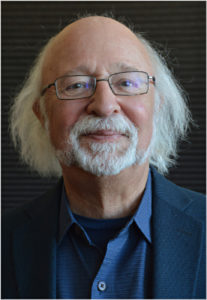Why Such a Narrow Path?
Master’s Musings, September 2022
Why Such a Narrow Path?
All over the world, people call our craft “astrology,” but beyond the core notion that the sky tells us something about ourselves, the system is almost impossible to define. That’s because it takes so many different forms – forms that are often actually quite contradictory. We might be better off saying “astrologies,” plural. Perhaps the most obvious illustration is Vedic astrology – Jyotish. It is a venerable, effective system, but one in which I stop being a Capricorn and become a Sagittarius. Talk about “quite contradictory!” That happens because Jyotish is sidereal – it’s based on the stars and constellations rather than the equinoxes and solstices that are the foundation of most Western forms of astrology. Then there are western sideralists too, but their techniques are distinct from the ones the Indians use.
Hellenistic astrology – the astrology the Greeks seem to have developed over two millennia ago – was nearly lost, but now it’s back in force. It’s a “tropical” system – seasons, not stars – just like we use in the FCEA, but looking at a Hellenistic chart will boggle your mind if you’re accustomed to modern Western astrology. If you’ve got late-Gemini rising, then in that system Gemini is your first house and that “early Gemini 12th house Mars” you thought you had is now “in the Ascendant.” They use “whole sign houses,” in other words – with Gemini rising, Cancer would be your 2nd house, Leo your 3rd, and so on. Hellenistic astrology has many other unique features – planetary periods, for example, and “zodiacal releasing.” Chris Brennan and Demetra George are two fine astrologers who represent that tradition, although there are now many others.
During the European Renaissance, astrology reinvented itself based on translations – and mistranslations – of the ancient Greek system. Here I think of Robert Hand, who started out as a modern western astrologer, but was fascinated by the Greek traditions, which led him eventually to embrace Renaissance astrology.
The three astrologers I just mentioned are all friends of mine. I have no argument with any of them. But when I hear them lecture, I have very little idea what they are talking about. That is not a criticism – I would feel the same way if I were listening to a brilliant lecture delivered in Pashto or Chinese.
There’s a modern western system of astrology called Cosmobiology. It was developed in Europe mostly by Alfred Witte and Reinhold Ebertin. Its techniques are centered on the midpoints of pairs of planets, and they rely heavily on 8th harmonic aspects. Then there’s Cosmobiology’s second cousin twice removed, called Uranian astrology. It uses eight hypothetical planets called Cupido, Hades, Zeus, Kronos,Apollon, Admetos, Vulcanos, and Poseidon. As I understand it, they are basically mathematical points, but I know near-zero about any of them. At least I’ve learned not to repeat the slander that Uranian astrologers are using “made up planets.” They don’t exist in a physical way, but then neither do the nodes of the Moon. As students in the FCEA, you know that we use the nodes, but none of the rest of that stuff!
Please don’t take that as a dismissal of any of these traditions. That’s not what this little essay is about. In the FCEA, we are just a little more picky in our approach – more about that in a minute.
At a technical astronomical level, the basic bones of the system we use in our school emerged gradually in recent centuries, mostly in Europe and the Americas. One very obvious practical point is that before our kind of astrology could develop, we needed clocks. There were crude ones as early as the 14th century, but the widespread knowledge of what time it was came much later. It would be hard to put a date on it; the widespread use of clocks and watches sort of drifted into the zeitgeist – and made our style of astrology, with its carefully-timed Ascendant, Midheaven, and house cusps, possible.
Still, even under the banner of “modern western astrology,” there are many techniques that we don’t use in the FCEA. We do use day-for-year progressions – technically called secondary progressions. There are “primary” ones too, but it’s an awkward technique and I’ve never used it in my practice. Slight errors in birth times make a mess of it. Then there are tertiary progressions and converse progressions . . . vertexes and antiscia . . . and on and on. You get the picture – “modern western astrology” is a grab-bag of techniques, most of which we ignore.
Sometimes there is talk of “licensing” astrologers. Maybe it will happen someday. You need a license to practice medicine or law or to fly an airplane. Perhaps it’s not such a bad idea. But I cringe when I think of it. Who’s going to decide who’s qualified to be an astrologer? Imagine me going to India and telling all the astrologers there that they flunked the test because they were using the wrong zodiac! I’ve had successful students in my old Apprenticeship Programs fail the test for the American Federation of Astrologers even though I am sure they could dance astrological circles around most of the people testing them. I’d fail most of the tests devised by astrologers in other schools myself.
The last time I had a professional astrological reading myself was with a Vedic astrologer named Swami Ambikananda. I choose her rather a western evolutionary astrologer just so my own ego wouldn’t get in the way. With techniques closer to my own turf, I would be busy “correcting” anyone who tried to explain my chart to me. But nobody would give me “an astrology license” in Mumbai or Benares, so I was safe. I could put my ego aside and just listen. What I heard was real and helpful.
I’ve often quoted this line from Robert Hand because it’s just so laser-like about getting to the heart of the matter. When asked about which kind of astrology was the right one, he responded, “Which is truer, French or German?” That’s really how I feel about all of this. These astrologies are all just different languages. You can tell the truth in any of them, or lie in any of them. I respect all of them, at least when they are offered to their communities by wise, loving, non-destructive humans.
So why then would a student in the FCEA who even mentioned whole sign houses immediately be subjected to electro-convulsive shock?
Well, that’s because we teach a very specific system here – the Steven Forrest Method. I admit I felt a little funny hearing it called that for the first time, but it’s right – that is what we are doing. We’re a Trade School, not a University. We teach my system, not anybody else’s. Emphatically, I would never say that there is only one way to do astrology. All I would say is that the way I have chosen to practice has been very successful. It has helped a lot of people, at least ones who are on a psychological and spiritual wavelength. It’s given me a good living and a meaningful and interesting life. That’s the gift we are trying to pass on in the FCEA. To receive it, we encourage you to start out by following in my footsteps – and we want to make sure that there are no other footsteps in the way to confuse you. And that is really the essence of what I am saying here – if you set out to master all of the various astrological traditions, you could maybe do it, but you would have to live to be about 178 years old. The good news is that maybe fifty years before that, the fog of confusion would begin to clear, and you’d be the wisest, most effective astrologer who had ever lived. Go for it, if you think you’ve got that kind of longevity in you!
When I was young, I read astrology widely – and of course I became totally bedazzled by the differing perspectives. But the mass of contradictory techniques I had accumulated soon passed through the fire – and by that I mean the realities of the counseling room. Groundless theory expressed authoritatively before an academic audience often has an appallingly long lifespan. But such empty theory quickly collapses in the intimate presence of one glassy-eyed client yawning or saying “no, that’s not me at all.”
Gradually, over the years, I carved out a system that worked for me and the people I served. Some of that process involved creativity and innovation on my part, mostly in my efforts to integrate archetypal psychology and metaphysics into the system. The “Steven Forrest Method” would not be what it is without Carl Jung, Ram Dass, and my own root teacher, Marian Starnes. None of them, with the possible exception of Jung, were active astrologers, although they all knew of it and respected it. They, along with some Buddhism, gave me the philosophical foundation I needed. At the technical end, much of what I did was just “editing” – getting rid of techniques that seemed less meaningful, and concentrating on the ones that really delivered. In that process, I had just one guiding question: out of the wealth of techniques we’ve inherited from our astrological ancestors, which ones spoke to me?
So here it is in a nutshell.
The FCEA is designed to take you from zero to mastery as quickly and as efficiently as is humanly possible, without cutting any corners. By “mastery” we mean the ability to sit down with a stranger, even a skeptical one, and have an undeniable, helpful impact on that person. That’s all. We’re not about making any other forms of astrology wrong, but we’re not about teaching you those forms either. What we are about is transmitting one highly effective system of astrological counsel to you without distraction or confusion.
Once you’ve learned the Steven Forrest Method, blessings on your journey wherever it takes you – even if it’s into Jyotish, Cosmobiology, Hellenistic astrology or whatever. Astrology is always evolving, just like you and me. You’ll be part of that journey. I’d love to see what a marriage of Hellenistic astrology and our system might look like. Maybe one of you will someday pull them together.
Whatever you do, just please keep freedom and personal responsibility in the center of it – and, in every word you say, please keep one eye on the higher ground that lies beyond this crazy, tempting, terrifying, and eminently distracting world.
Steven Forrest
September 2022


